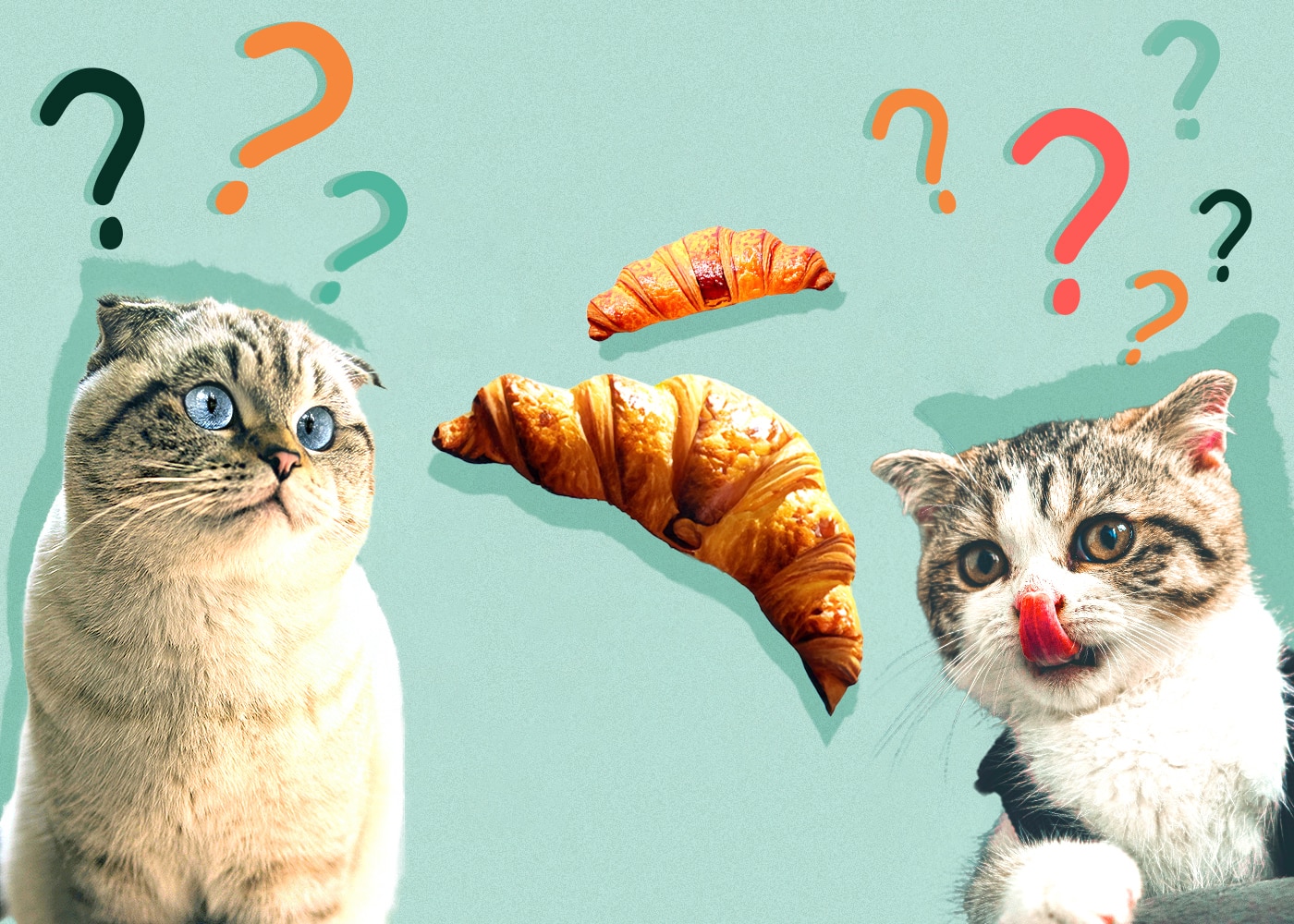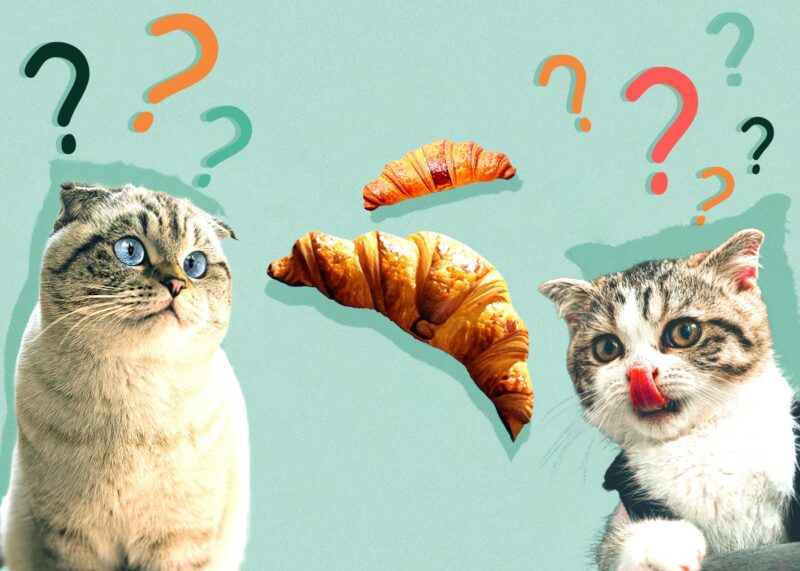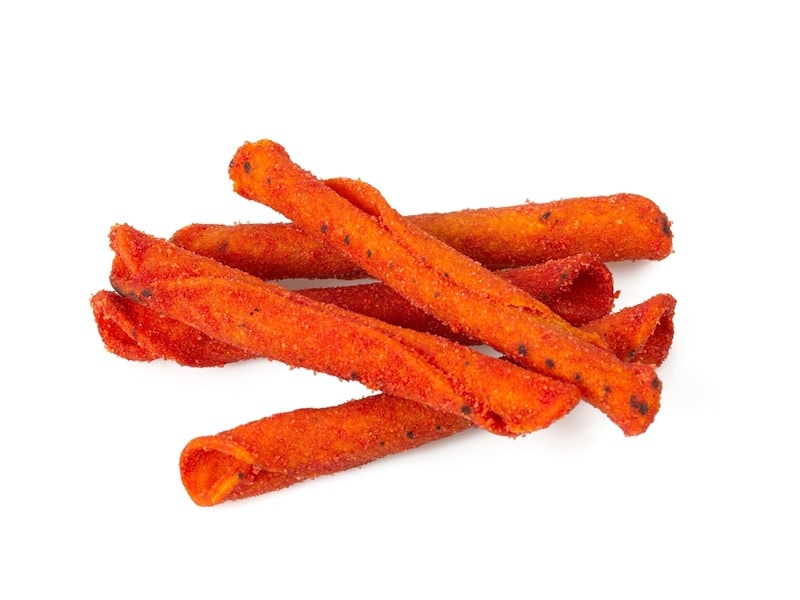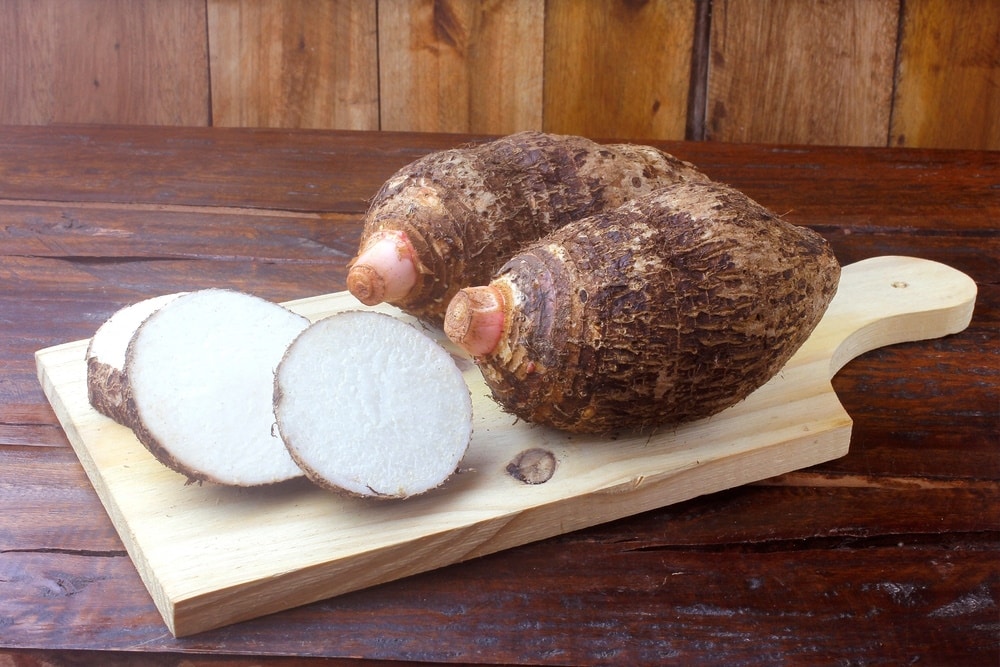Croissants are delicious baked goods that nearly everyone can appreciate. But even though we humans might enjoy them when we are channeling our inner Parisian at Sunday morning brunch, felines are a different story. Although croissants are non-toxic to cats, they are not nutritionally beneficial to them and should be avoided.
So, if your cat ate a small piece of croissant that fell on the floor or sneaked it off your plate, you can rest easy knowing that this food won’t hurt your pal, aside from a potentially upset stomach. But let’s explain why this shouldn’t become a habit.

Croissant Nutrition Facts
- Calories: 231
- Total Fat: 12 g
- Cholesterol: 38 mg
- Sodium: 266 mg
- Potassium: 67 mg
- Total Carbohydrate: 26 g
- Protein: 4.7 g
- Iron: 6%
- Magnesium: 2%
- Calcium: 2%
- Cobalamin: 1%
Contents of Croissants
Croissants consist of flour, sugar, salt, butter, and yeast, making a fluffy, light roll. They are also full of carbohydrates, fat, and sodium, all in amounts that are far too much for your cat. So, while they might make fantastic additions to your family breakfast spread, they should stay out of your cat’s food bowl.

Why Cats Shouldn’t Eat Croissants
Since cats only need nutrients from animal organs and flesh, a croissant wouldn’t have any value for them whatsoever. Obviously, in nature, cats would never eat a croissant. Even though it’s entirely non-toxic, they do not need this food substance.
Cats are obligate carnivores, meaning they only eat meat sources. There are plenty of healthier alternatives for your cat to munch on than these baked delights. That said, you can make kitty-friendly croissants—just look around on Pinterest for inspiration.
Croissants also contain a high amount of sodium, which is added salt. Felines definitely don’t need any extra salt, as it can be dangerous for them to consume.
Empty Calories
Croissants contain what we refer to as empty calories. These do not add any value to one’s daily diet. Even for humans, croissants are not nutrient-dense food. So, if your cat eats a croissant, they’re getting a squishy mouthful of fat, sodium, carbohydrates, and artificial flavors.
In summary, croissants just don’t contain anything that adds a real benefit to anyone’s diet, especially your cat’s.
Do Cats Like Croissants?
Cats typically won’t show interest in a food item like a croissant, as it has no smell or flavor that would entice a feline’s appetite. However, if it touched any side items, like gravy or meat marinade, they might want to chow down on those snacks—and the croissant is just there in the mix.
Of course, there is always that strange little kitty that would like to try the odd non-cat-food selection. If that’s the case, a tiny bit won’t hurt every so often. But frequent eating can pose not-so-healthy outcomes for your cat’s body, as with many human foods.
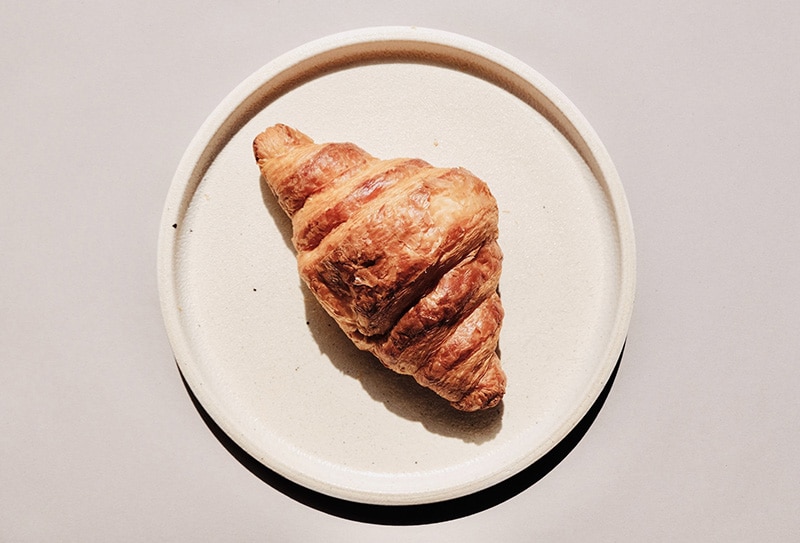
Dangers of Raw Dough
Consuming raw dough poses a direct threat to your cats and can be quite a different story. The uncooked dough, when consumed, rises in the stomach, creating dangerous gases that expand the abdomen. If your cat eats enough dough, it can cause a rupture in their stomach, leading to death.
What happens is that the uncooked yeast ferments carbohydrates within that dough, which in turn, produces ethanol and carbon dioxide. When this process occurs in the stomach, it will create gases that distend the abdomen, causing bloating. When this takes effect, clinical signs can develop rapidly, such as disorientation.
If you know your cat has consumed any amount of croissant dough, you must seek veterinary care immediately. This matter is very time-sensitive and can have huge repercussions if you wait.
Additional Food Items to Consider
If your cat is enjoying a leftover croissant, it is vital to know if anything else on the plate could be toxic. Croissants are often paired with some potentially damaging foods, like garlic, onion, chives, and other toxins, along with simple irritants like dairy.
It’s unlikely your cat will have enough of any type of food to have severe consequences, but it’s still best to be proactive.
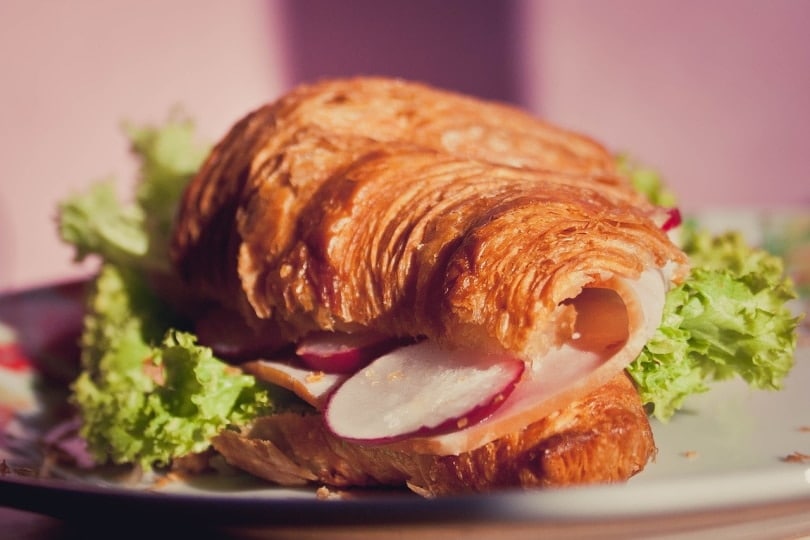
Croissant Alternatives for Cats
There are tons of baked alternatives you can give to your cats that you can make from the comfort of your own kitchen. You have likely seen baked cat treats on the market, so you know that you can always buy commercial products as well.
Species-specific treats are really important for a few reasons. First, your pet requires a unique set of ingredients to enhance their body’s performance and keep them as healthy as possible.
Second, if they have a disproportionate amount of nutrients in their body, it can cause imbalances, leading to health issues down the line. So, as tempting as it is to share meals with our feline friends, it’s really in their best interest for the long term if we don’t.
Try alternative snack items like baked yummy treats, dehydrated or boiled meats, and broths. You can find a wide variety of things to make at home, buy at the store, or order online to have on hand when your cat gets a hankering.
Cats & Croissants: Final Thoughts
So, now you know that the final verdict is that your cat should stay away from croissants, even as occasional snacks. Also, pay close attention to any other potentially harmful food items your cat could have eaten alongside the croissant.
If you think that your kitty could have swallowed any type of harmful substance, don’t hesitate to get them to your veterinarian right away.

